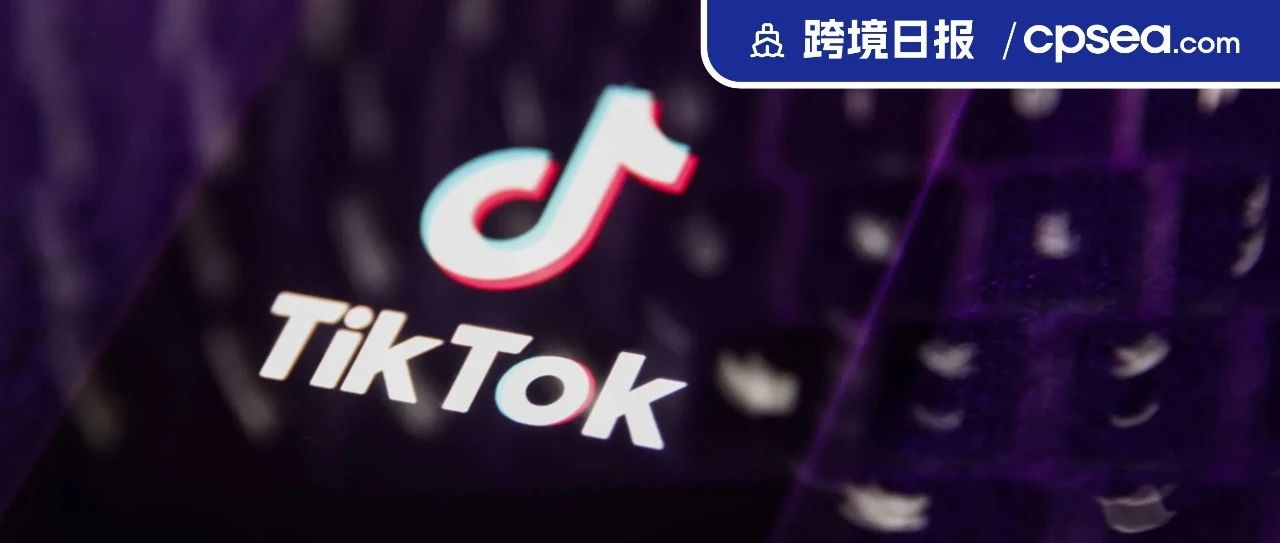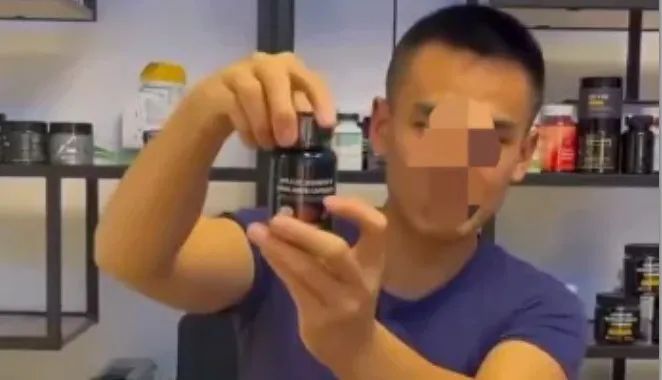Anti-Sunscreen Movement Spreads On TikTok. Here Are Issues With This Trend

TKFFF · 2024-06-14 14:09
 Various posts on TikTok and other social media platforms have been throwing shade on the use of sunscreen. The posts have been claiming that sunscreen is not necessary, can block you from getting enough natural exposure to sunlight, and contains potentially harmful chemicals. So, should you believe these anti-sunscreen claims because, you know, you should automatically trust everything that you see on social media, right? Or are these claims full of you-know-what? Well, there are different layers to the use of sunscreen. So, let’s shed some more sunlight on the use of sunscreen and the fact that they’re not all the same.
Treat the sun like you might that super fun and sociable friend who can bring you opportunities but can be a bit toxic. Exposure to the sun can help raise your mood, better regulate your sleep-wake cycle and prompt your body produce vitamin D. At the same time, the ultraviolet radiation in sunlight can damage your skin cells. This damage can not only be aesthetically unappealing, it can also lead to skin cancer. Therefore, while getting regular exposure to sunlight is helpful, assuming that you aren’t a vampire, it is important to take proper precautions when in the sun. This is particularly the case when the UV index reaches three or beyond.
The problem is there is a fair amount of misinformation out there about what exactly constitutes proper precautions. A survey recently conducted by the Orlando Health Cancer Institute found that around one in seven adults under 35 who responded thought that daily sunscreen use is more harmful to the skin than direct sun exposure and nearly a quarter (23%) believed that drinking water and staying hydrated would somehow prevent sunburn. The survey also revealed that close to a third (32%) felt that a tan makes you look better and healthier.
You can drink water until your bladder feels like the Goodyear blimp and it’s still not going to offer enough protection against sunburn or other types of skin damage. Instead, you want to do some combination of the following: stay in the shade, wear clothing to keep the sun from reaching your skin and use sunscreen on any skin that may still be left exposed to the sun. Now, while many different types of clothing can help cover your skin—ranging from cotton shirts to a Deadpool costume to a suit of knight’s armor—you shouldn’t use just any type of sunscreen.
First of all, as Dr. Neha Pathak, M.D., the chief physician editor of health and lifestyle medicine for WebMD, has emphasized, the sunscreen has to be broad spectrum enough to “protect against both forms of UV radiation—UVA and UVB. This will protect you from a sunburn and wrinkles, but also lower your risk of melanoma by 50%.” Pathak added that there are other types of solar radiation to be concerned about: “Infrared and blue light can cause oxidative stress and damage.” She also said that the sunscreen should have a sun protection factor level of at least 30, although “There’s little benefit in anything greater than SPF 50.”
Secondly, the way the sunscreen is applied matters. Pathak explained that while “spray sunscreens have gained popularity with their easy-to-use, non-greasy formulas, they can be harder to apply evenly and can sometimes be blown away in the wind before hitting your skin.” This can end up diluting the sunscreen before it hits your skin and giving the animals, trees and other parts of the environment a dose of all the chemicals in the sunscreen.
Speaking of chemicals, this brings up a third issue, which has been a big part of the anti-sunscreen movements on social media: the chemicals that may be in sunscreen. Recent investigations have found chemicals in a number of sunscreen products that you wouldn’t want on you or the environment around you. For example, in May 2021, Valisure, a quality assurance company, wrote a letter to the U.S. Food and Drug Administration informing the agency that its testing found high levels of benzene in 78 different sunscreen and after-sun care products. That wasn’t great news because benzene—a highly flammable chemical that used in many industrial processes—is a known carcinogen, something that can cause cancer like leukemia. And benzene is not like jalapeño peppers where there’s a level of exposure that’s considered safe. You should try to avoid any exposure to benzene.
Then there is octocrylene, which can degrade into benzophenone, a suspected carcinogen that can mess with your hormones and reproductive organs, two things you typically don’t want to mess with if possible. A study published in the journal Chemical Research in Toxicology in March 2021 found that 16 octocrylene-based sunscreen sprays and lotions contained detectable levels of benzophenone. In fact, in an August 2022 Yale Medicine article, Carrie Macmillan wrote that “about 2,400 sun-protection products contain” octocrylene.
I’ve also covered previously for Forbes a study that showed how sunscreen chemicals can make their way into your bloodstream. So there might be more than just your skin in the game when it comes to sunscreen.
This doesn’t mean that you should avoid all types of sunscreen. It simply means that you should be aware of what’s actually in a given brand of sunscreen. Pathak advised, “Avoid some ingredients of concern if you can: oxybenzone, octinoxate (octyl methoxycinnamate), consider mineral products with zinc oxide. Also try to avoid spray or powdered forms of titanium dioxide.” Pathak also emphasized the importance of good skin care in general to maintain the integrity of your skin to prevent chemicals from getting under your skin, so to speak. “Have a really great nighttime regimen,” she said. “Wash off the sunscreen with a gentle cleanser. Allow your skin time to repair.”
Ultimately, make sure that you properly screen what’s being said on social media about sunscreen. Sure, there are concerns about some of the chemicals that may be in sunscreen. But the solution is not to avoid sunscreen all together. Rather, you should be more an informed shopper, realize that not all sunscreens are the same, know what’s in a given sunscreen and choose the product that offers the right protection and is safest for you and the environment.
Various posts on TikTok and other social media platforms have been throwing shade on the use of sunscreen. The posts have been claiming that sunscreen is not necessary, can block you from getting enough natural exposure to sunlight, and contains potentially harmful chemicals. So, should you believe these anti-sunscreen claims because, you know, you should automatically trust everything that you see on social media, right? Or are these claims full of you-know-what? Well, there are different layers to the use of sunscreen. So, let’s shed some more sunlight on the use of sunscreen and the fact that they’re not all the same.
Treat the sun like you might that super fun and sociable friend who can bring you opportunities but can be a bit toxic. Exposure to the sun can help raise your mood, better regulate your sleep-wake cycle and prompt your body produce vitamin D. At the same time, the ultraviolet radiation in sunlight can damage your skin cells. This damage can not only be aesthetically unappealing, it can also lead to skin cancer. Therefore, while getting regular exposure to sunlight is helpful, assuming that you aren’t a vampire, it is important to take proper precautions when in the sun. This is particularly the case when the UV index reaches three or beyond.
The problem is there is a fair amount of misinformation out there about what exactly constitutes proper precautions. A survey recently conducted by the Orlando Health Cancer Institute found that around one in seven adults under 35 who responded thought that daily sunscreen use is more harmful to the skin than direct sun exposure and nearly a quarter (23%) believed that drinking water and staying hydrated would somehow prevent sunburn. The survey also revealed that close to a third (32%) felt that a tan makes you look better and healthier.
You can drink water until your bladder feels like the Goodyear blimp and it’s still not going to offer enough protection against sunburn or other types of skin damage. Instead, you want to do some combination of the following: stay in the shade, wear clothing to keep the sun from reaching your skin and use sunscreen on any skin that may still be left exposed to the sun. Now, while many different types of clothing can help cover your skin—ranging from cotton shirts to a Deadpool costume to a suit of knight’s armor—you shouldn’t use just any type of sunscreen.
First of all, as Dr. Neha Pathak, M.D., the chief physician editor of health and lifestyle medicine for WebMD, has emphasized, the sunscreen has to be broad spectrum enough to “protect against both forms of UV radiation—UVA and UVB. This will protect you from a sunburn and wrinkles, but also lower your risk of melanoma by 50%.” Pathak added that there are other types of solar radiation to be concerned about: “Infrared and blue light can cause oxidative stress and damage.” She also said that the sunscreen should have a sun protection factor level of at least 30, although “There’s little benefit in anything greater than SPF 50.”
Secondly, the way the sunscreen is applied matters. Pathak explained that while “spray sunscreens have gained popularity with their easy-to-use, non-greasy formulas, they can be harder to apply evenly and can sometimes be blown away in the wind before hitting your skin.” This can end up diluting the sunscreen before it hits your skin and giving the animals, trees and other parts of the environment a dose of all the chemicals in the sunscreen.
Speaking of chemicals, this brings up a third issue, which has been a big part of the anti-sunscreen movements on social media: the chemicals that may be in sunscreen. Recent investigations have found chemicals in a number of sunscreen products that you wouldn’t want on you or the environment around you. For example, in May 2021, Valisure, a quality assurance company, wrote a letter to the U.S. Food and Drug Administration informing the agency that its testing found high levels of benzene in 78 different sunscreen and after-sun care products. That wasn’t great news because benzene—a highly flammable chemical that used in many industrial processes—is a known carcinogen, something that can cause cancer like leukemia. And benzene is not like jalapeño peppers where there’s a level of exposure that’s considered safe. You should try to avoid any exposure to benzene.
Then there is octocrylene, which can degrade into benzophenone, a suspected carcinogen that can mess with your hormones and reproductive organs, two things you typically don’t want to mess with if possible. A study published in the journal Chemical Research in Toxicology in March 2021 found that 16 octocrylene-based sunscreen sprays and lotions contained detectable levels of benzophenone. In fact, in an August 2022 Yale Medicine article, Carrie Macmillan wrote that “about 2,400 sun-protection products contain” octocrylene.
I’ve also covered previously for Forbes a study that showed how sunscreen chemicals can make their way into your bloodstream. So there might be more than just your skin in the game when it comes to sunscreen.
This doesn’t mean that you should avoid all types of sunscreen. It simply means that you should be aware of what’s actually in a given brand of sunscreen. Pathak advised, “Avoid some ingredients of concern if you can: oxybenzone, octinoxate (octyl methoxycinnamate), consider mineral products with zinc oxide. Also try to avoid spray or powdered forms of titanium dioxide.” Pathak also emphasized the importance of good skin care in general to maintain the integrity of your skin to prevent chemicals from getting under your skin, so to speak. “Have a really great nighttime regimen,” she said. “Wash off the sunscreen with a gentle cleanser. Allow your skin time to repair.”
Ultimately, make sure that you properly screen what’s being said on social media about sunscreen. Sure, there are concerns about some of the chemicals that may be in sunscreen. But the solution is not to avoid sunscreen all together. Rather, you should be more an informed shopper, realize that not all sunscreens are the same, know what’s in a given sunscreen and choose the product that offers the right protection and is safest for you and the environment.
文章来源:Forbes


TKFFF公众号
扫码关注领【TK运营地图】

TKFFF合作,请扫码联系!

文章来源: 文章该内容为作者观点,TKFFF仅提供信息存储空间服务,不代表TKFFF的观点或立场。版权归原作者所有,未经允许不得转载。对于因本网站图片、内容所引起的纠纷、损失等,TKFFF均不承担侵权行为的连带责任。如发现本站文章存在版权问题,请联系:1280199022@qq.com
分享给好友:













